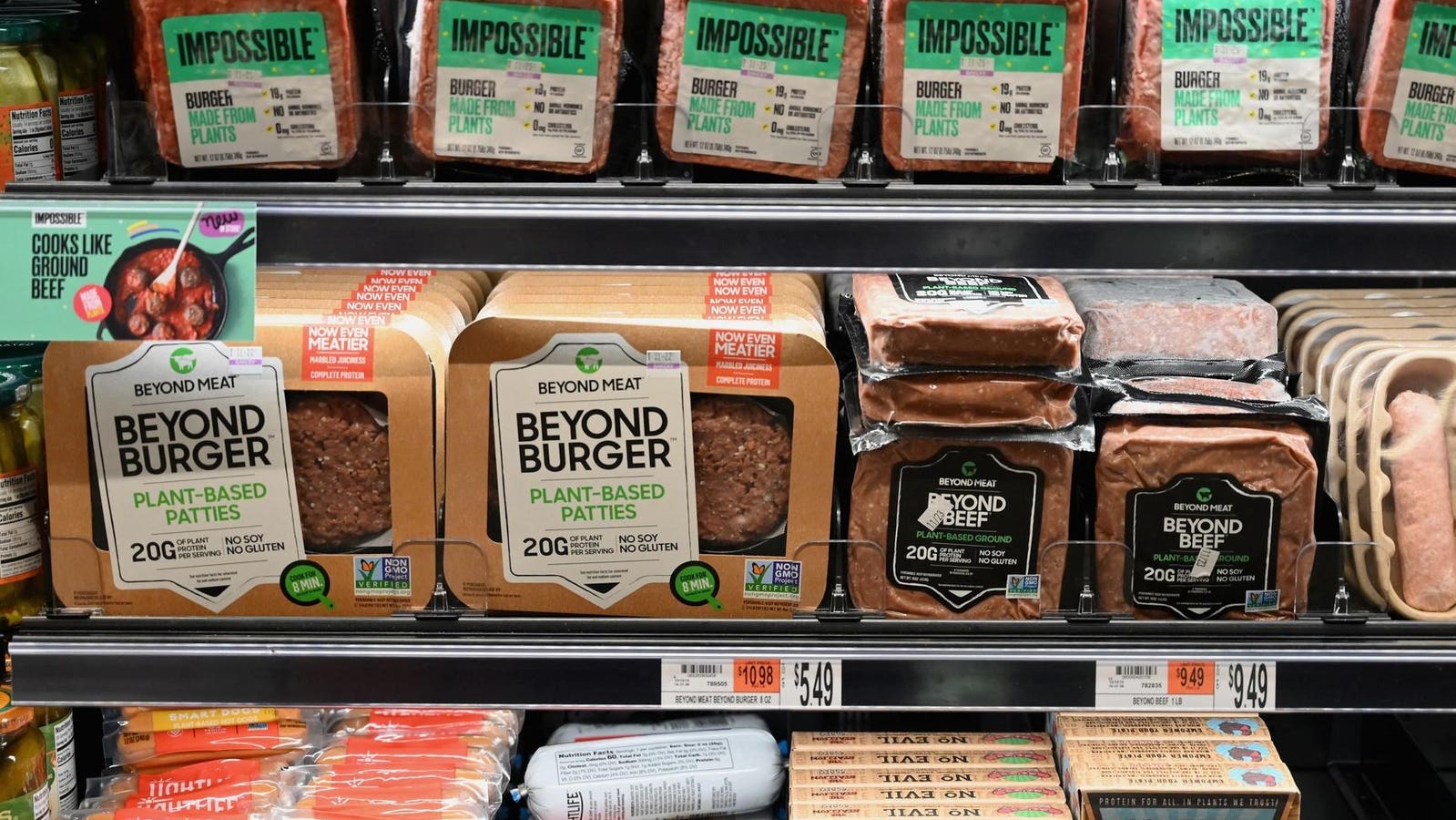U.S. retail sales of plant-based meat alternatives are on the decline since 2023, with value sales … More
In 2019, Beyond Meat went public with one of the most successful IPOs of the decade, while rival Impossible Foods scored deals with Burger King and Starbucks following the buzz around its Impossible Burger. Fast-forward just a few years and sales have declined, along with interest in fake meat. Does this mean that consumers are no longer interested in cutting back on meat? Absolutely not. The future does contain more plant-based diets, but meat dupes likely won’t be a part of them.
The Plant-Based Meat Alternative Market Is Stalling
Given projections of stellar growth in the plant-based industry, driven mainly by the rise of health and wellness as well as a growing interest in making more sustainable choices, companies like Beyond Meat looked to seize a clear market opportunity and become market leaders. While curiosity and buzz drove the surge of Beyond Meat burgers in 2019-2021, interest went down rapidly after that, with sales declining as consumers moved away from these meat alternatives for a variety of reasons. According to The Good Food Institute, sales of plant-based meat and seafood stalled in 2022 and declined in 2023, with dollar sales down 19%. In Q4 of 2024 Beyond Meat reported a net loss of $44.9 million while net revenues for the full year were $326.5 million, a decrease of 4.9% year-over-year.
Inflation and premium pricing have made consumers reluctant to buy fake meat produce (yet Beyond Meat is raising its prices again). But the main barrier to purchase for consumers is very simple: people just don’t understand what they are eating. In their effort to mimic real meat, these companies have left consumers perplexed and without appetite.
The reality is that it isn’t really about going meat-free, but rather about eating more wholesome, homemade and simple foods, which processed meat-alternative products don’t deliver. Nestlé and Unilever, while recognizing the need for more plant-based brands in their portfolios, are also realizing that products replicating the taste and texture of real meat aren’t the way to get there. Unilever is looking to sell The Vegetarian Butcher, a brand acquired in 2018 which has delivered underwhelming sales and is loss-making. Consumers are simply not drawn to patties that seem too processed are full of ingredients they don’t know.
Consumers Want Simple, Wholesome, Healthy Alternatives
The main reason why consumers consider plant-based meat alternatives is an increased level of health consciousness and thus a desire to eat healthier. The negative impacts of a heavy meat diet on our health have now been shared broadly enough that consumers across age groups are interested in adding more greens to their diets and cut back on meat. That doesn’t mean that fake meat is the solution, but maybe that products made up of a few simple ingredients like lentils, beans and seeds can be a good alternative. And they don’t have to replicate meat, because the reality is that most plant-based eaters also eat meat. Aware of the growing consumer interest in healthier eating, Beyond Meat revised its formulas and relaunched its Beyond Beef and Beyond Burger last year, switching to avocado oil to reduce saturated fats and incorporating protein-dense, nutritious ingredients like red lentils and fava beans.
The meat-alternative segment of plant-based foods is on the decline, with consumers prioritizing … More
Plant-based foods will not boom because everyone will go vegan in ten years from now, but rather because everyone will lower their meat consumption and increase their plant-based protein intake, leaning towards a flexitarian diet. In the U.S., 47% of consumers identify as flexitarian, meaning that they eat mostly plant-based foods, consume meat in moderation and focus on whole foods rather than processed options. Studies show that when meat is consumed, it is done in moderation and higher-quality options like grass-fed beef or organic chicken is chosen, highlighting a tendency to chose quality over quantity when it comes to eating animal products.
Owning a successful brand that offers plant-based meals might just be about providing wholesome, plant-based burgers or nuggets made from simple ingredients that shoppers understand and that provide a convenient way to consume plant-based meals and proteins. Brands like Morning Star Farms or Dr. Praeger’s sell veggie burgers with ingredient lists that are easy to understand and aren’t overly processed, making it a more approachable option for consumers interested in having healthier, more sustainable diets. To put it simply, eating less meat might not be achieved by substituting meat with fake alternatives, but rather wholesome, ‘natural’ alternatives.
For Beyond Meat or Impossible Foods to last in time, they must focus on what consumers really want: transparency, quality, and simplicity. The future of plant-based eating isn’t about imitation, it’s about real food. This isn’t to say that these brands won’t thrive in the next five to ten years, but to succeed in grocery retail, they will have to rethink their formulas and positioning to appeal to all consumers – the flexitarians, carnivores, eco-friendly and health-focused ones. With Beyond Meat already refining its approach through cleaner ingredient lists and new products embracing veggie foods rather than mimicking meat, the real question remains: Will plant-based meat products last, or will the market shift toward a different vision of plant-based eating?



